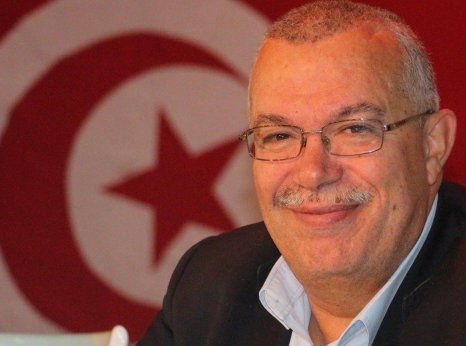Tunisia: Ex-Minister To Be Tried On Bogus Charges

Noureddine Bhiri (64) is a leading member of Ennahda and former Minister of Justice from 2011 to 2013 who served under a coalition government created following the ouster of long-time ruler Zine el Abidine Ben Ali on 14 January 2011. Noureddine Bhiri is a lawyer and standing member of the Tunisian Bar Association. He had also previously served as vice-president of Ennahdha, the main political party in Tunisia with a majority in parliament before President Kais Saied suspended it on 25 July 2021 citing emergency powers under Article 80 of the Constitution. The party has criticized President Saied's concentration of powers since the July 2021 suspension of parliament, calling it a coup.
The arrest of Noureddine Bhiri on 13 February 2023 and his subsequent detention stem from critical online remarks that the authorities claim he had posted on 8 January 2023 on his private Facebook page, around the time of a demonstration organized by members of the National Salvation Front, an opposition coalition. A copy of the Facebook post was shared with Amnesty International by a member of his defence team. In the post, he calls for “peaceful resistance against the coup”. He says that “people shouldn’t be afraid of the coup and that they need leadership”. Additionally, Noureddine Bhiri denied being the author of the social media post. In any case, the speech in the Facebook post, which is no longer available online, is fully protected by international human rights law.
Noureddine Bhiri is currently held in Mornaguia prison under the accusation of “trying to change the form of government” and “inciting violence” under Article 72 of the Penal Code. If convicted, he could face the death penalty.
He has long suffered from diabetes and a high blood pressure, and normally takes regular medication for both ailments. His health is at risk. Under international human rights law, and specifically the International Covenant on Civil and Political Rights (ICCPR), and the African Charter on Human and Peoples’ Rights to which Tunisia is a state party, everyone has the rights to freedom of expression and freedom from arbitrary detention.
Noureddine Bhiri had already experienced arbitrary arrest and house arrest when men in civilian clothing arrested him and another man Fathi Beldi, a former Interior Ministry official, on 31 December 2021 and held them both at undisclosed locations for two days. Authorities subsequently placed both men under house arrest. On 7 March 2022, the Ministry of Interior lifted the house arrest and Tunisian authorities eventually filed no formal charges against both men. On 25 July 2021, President Saied claimed emergency powers that he said were granted to him by Tunisia's 2014 Constitution. Since then, authorities have opened criminal investigations against at least 74 opposition figures and other perceived enemies of the president, including at least 44 people accused of crimes in connection with the peaceful exercise of their human rights.
On 25 July 2021, President Saied claimed emergency powers that he said were granted to him by Tunisia's 2014 Constitution. Since then, authorities have opened criminal investigations against at least 74 opposition figures and other perceived enemies of the president, including at least 44 people accused of crimes in connection with the peaceful exercise of their human rights.